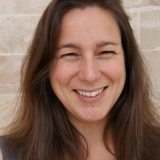Climate change could potential have significant impacts on the global tourism industry through changes in accessibility, comfort levels, and geographic or seasonal changes to attractions. Global and regional studies based on climate indices suggest that there will be global shifts in tourism, with many of the currently warmer areas potentially experiencing decreases in tourism. These include much of the global south, where nature-based tourism is both an important contributor to economic output and believed to be vulnerable to climate change. Protected areas form the core of nature-based tourism in many developing countries and are also directly or indirectly dependent on this tourism for their funding. However, comparatively little empirical work has been done on protected area tourism, particularly in developing countries. We modelled the relationship between occupancy and mean monthly temperature at each of South Africa’s 19 national parks and estimated the potential change in demand as a result of climate change. We found significant quadratic or linear relationships between occupancy and temperature for all parks. A single network-wide model could not capture all the location-specific temperature and tourism demand dynamics occurring at individual parks. The temperature models explained over 50% of the variance in historical occupancy for 17 parks, suggesting that climate change may have a significant impact on the timing and magnitude of demand across the network. Based on projected future temperatures, visitation rates across all parks could decline by nearly 4% by 2050, with most of the decline in Kruger National Park, which has the lion’s share of visitors.
Conservation implications: The results are of concern given that tourism proceeds generated by Kruger National Park are used to subsidise the operating budgets of the entire park system, which would put the capacity for conservation activities at risk, suggesting that measures to alleviate climate discomfort to tourists should be explored by management.

